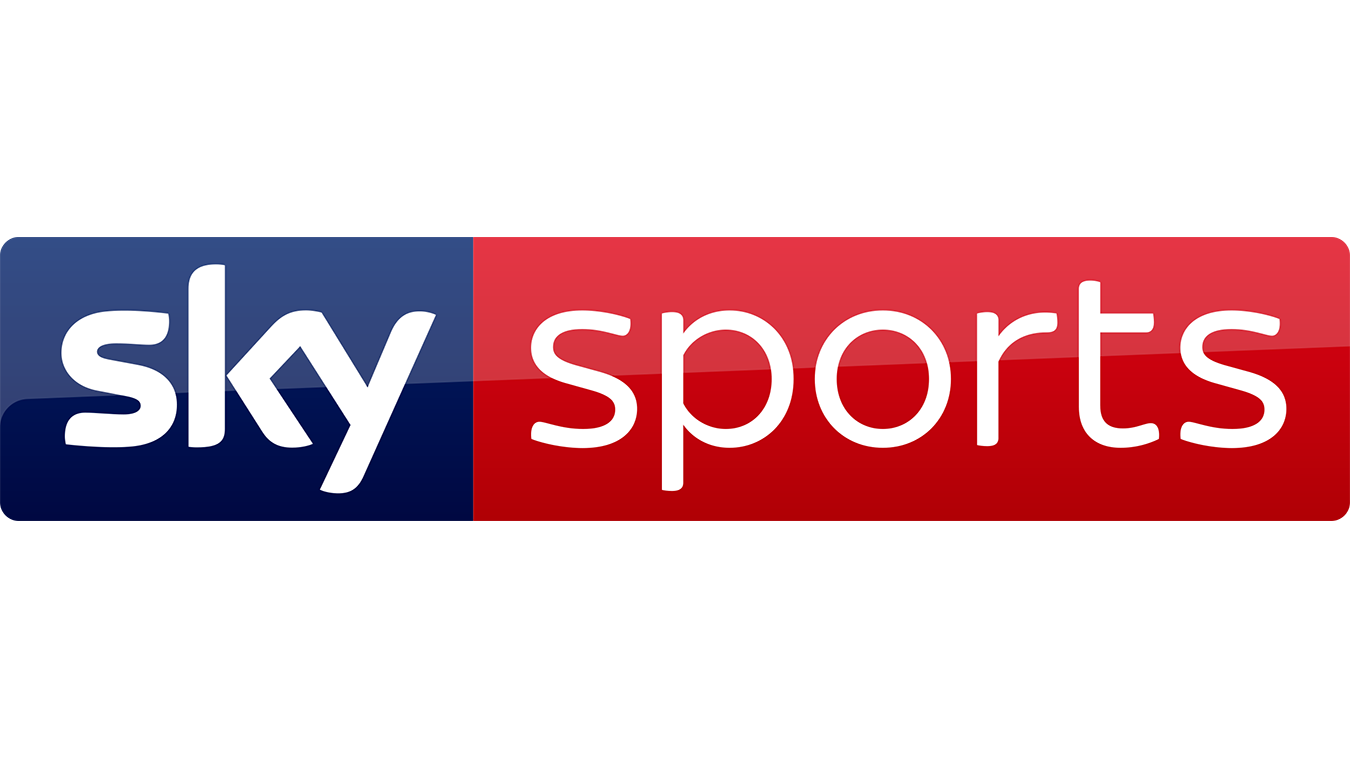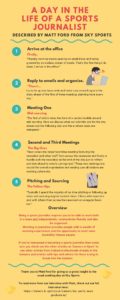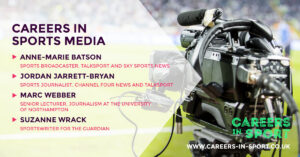Matt Ford
Job title Sky Sports News Graduate IQ
Employer Sky Sports News

Sky Sports News is, arguably, the pinnacle of sports news in the UK and other European countries. Being able to create consistent, high-quality pieces for a global audience is the dream for many sports journalists, Matt Ford is one of those fortunate enough to have secured a role doing just that.
We spoke with Matt about his job at Sky Sports News, how he secured that job through a graduate scheme and gave some insightful advice to those looking to follow in his footsteps.
“Heart of all decisions”
Can you tell us about your current role as a Sky Sports News Graduate?
I landed the position on the Sky Sports News graduate scheme and began my role at the beginning of July 2019. I’m currently working on the planning desk who are the heart of all the decisions about what content goes forward to be commissioned. It’s pretty hands on!
“We are the go-to for everyone in the newsroom.”
What are your main responsibilities?
As all ideas are conceived on the planning desk, it is the responsibility of my colleagues and I to set the agenda. We are the go-to for everyone in the newsroom. All of our content is put into a newsroom-wide diary and we are responsible for everything from pitching ideas to the newsdesk, ensuring reporters know their briefs, and to be working in the here and now and planning future content in the medium and long-term.
Jamie Murray joined Sky Sports News earlier to offer his reaction to this year’s #Wimbledon cancellation. Piece here: https://t.co/vDLMquAguB
— Matt Ford (@MattFord_SSN) 1 April 2020
“You’re always up against a deadline”
What are the biggest challenges in your Sky Sports News Graduate role, or facing your industry generally?
You’re always up against a deadline of one sort of another and one of the big challenges is ensuring there is a wide variety of content planned. We’re always on the phone or answering emails and one thing you get used to very quickly is to not get too disheartened if a shoot or idea you’ve pitched and worked on relentlessly doesn’t make the cut! Quite often the editorial agenda is shuffled around depending on what is considered most newsworthy or on availability of personnel.
For the industry it’s a question of funding. Good journalism costs time and money and there isn’t enough of either floating around. It’s great to see, however, several national outlets pushing long-form content. The pressures are as relentless as ever with digital shaping so much of what we do, but you cannot beat original journalism and it should be protected and encouraged.
“I spend the majority of my time pitching or following up ideas”
Explain a typical week in terms of how you break down your time?
Monday morning means opening an email inbox and being greeted by an endless stream of emails. That’s the first thing I do when I arrive in the office.
Then I try to tie up any loose ends and make sure everything is in the diary ahead of the first of three meetings planning have every day, the first of which takes the form of a section huddle around mid-morning.
Here we discuss what our priorities are for the day ahead and the following day and this is where tasks are delegated.
Next comes the larger lunchtime meeting featuring the newsdesk and other staff from across the newsroom and finally a huddle with the newsdesk at the end of the day just to reflect and look ahead to what’s coming next.
Typically I spend the majority of my time pitching or following up ideas and sourcing original content ideas. I liaise with reporters and with others from across the newsroom on a regular basis too.
“I’ve enjoyed work experience at The Guardian and the Daily Mail”
Tell us a bit about your career path to this point…
I’ve wanted to go into journalism for as long as I can remember and I consider myself very fortunate to do something I enjoy for a living.
My journey started at the age of 14 when I began writing match reports for my local non-league football team, Northwood FC.
After stints writing for a few websites, my first big break came in winning the Watford Observer Young Sports Writer of the Year award in 2014 which won me a week’s work experience at the paper, and then with start-up website WD Sport in Watford.
It was with the latter that I covered 10 Watford Premier League games between 2015 and 2017, complimenting this with a freelance stint at Newsquest’s East London Guardian where I covered Leyton Orient in 2017 and 2018-19.
At university in Edinburgh I wrote extensively for student media, becoming sport editor and then editor-in-chief of The Student newspaper, while also holding the role of Edinburgh Capitals ice hockey reporter for student radio station Fresh Air.
I’ve since enjoyed work experience at The Guardian and the Daily Mail and most recently I interned at Love Sport Radio as an assistant producer and on-air contributor.
I completed my NCTJ Diploma in Multimedia Sports Journalism at News Associates London in May 2019.”
Unlike Matt Ford, not everyone goes to University to become a sports journalist. Some choose the apprenticeship route in securing a job as a sports journalist, learn more about apprenticeships here.
“Anything that will make you stand out from your competitors”
What experience does your kind of career require?
Experience is important because it demonstrates a willingness to make sacrifices and a passion for your field, not to mention the work ethic that any employer values.
You don’t need to have had by-lines for national newspapers – though if you do it can’t hurt! – but if you’ve worked, often unpaid, for a few websites or you have your own blog it shows intuitiveness and can show off your skillset.
It’s a hugely competitive industry so you need anything that will make you stand out from your competitors.
Any transferable experience that demonstrates your ability to time manage, work under pressure, individually or in a team, is valued.
The more time you’ve spent working with those in the industry is time spent learning from others who have been in your shoes, and it can help hone your skills and grow your confidence.
For those starting out, email and phone around as many people as you can. Ask for advice, ask to come in, ask to write copy for them and show that you’re prepared to work for free initially.
“Having shorthand can save you a lot of time”
What skills and knowledge do you need in your role?
Everything from writing and communication skills, experience talking on the telephone, time management and working to tight, pressurised deadlines, and the ability to work in a team or alone for periods of time.
A general knowledge of as many sports as possible is certainly important and having shorthand can save you a lot of time when taking notes.
Italian Football Federation president Gabriele Gravinahad some strong words about the state of football’s finances in the country, adding he could not be the ‘undertaker of Italian football’. ???https://t.co/xVBD83EeW0
— Matt Ford (@MattFord_SSN) 20 April 2020
“Social media has convinced everyone they can be a journalist!”
What opportunities are there in your industry for young people?
It’s probably never been more competitive to get into the industry. Yes, there are more pathways than the traditional route of starting at a local paper, but more outlets means more competition and social media has convinced everyone they can be a journalist!
If you’re studying for, or have graduated from, your NCTJ, then tap into websites like www.journoresources.com who collate all the latest openings from internships to grad schemes, trainee jobs to roles for the more experienced.
Many of the national outlets also run work experience programmes, although you have to apply for the vast majority of them and they can be competitive. That shouldn’t discourage you though.
If you are looking to gain experience in sports journalism then workshops and job openings are great ways to find out more about the industry and gain experience, they look great on your CV. Why not check out our workshop and jobs sections to see what is available?

“Try to have fun along the way.”
If you had one bit of advice you would tell your younger self, what would it be?
Not to worry too much. It can feel daunting when you’re starting out and when it feels like the industry is more about who you know than what you know.
But if you’re driven and have a clear purpose and direction about where you would like to end up, then that’s half of the battle.
Show enthusiasm, don’t be afraid to make mistakes and try to have fun along the way. Of course, there is pressure and fear of the unknown is a common thing, but with the right attitude it’s possible to go a long way.
“Never feel a job is too big or too small”
What was the best advice you were given?
Look around, do your research and know the job spec for everywhere you apply for and tailor your application accordingly. Never feel a job is too big or too small and grab every opportunity that comes your way – even it if doesn’t work out it’s still an experience gained.
“Getting paid to do what you love.”
What are three things about working in the sports media industry you love?
- Working as part of a team might be commonplace in every line of work, but in journalism it’s incredibly tight knit and the camaraderie is a real plus.
- The buzz of working on big stories and taking an idea and turning it into the finished article.
- Getting paid to do what you love.
“Decline of traditional storytelling”
What are the three most challenging things about working in the sports industry?
- Time pressures
- The rise of fake or unsourced news
- The decline of traditional storytelling, i.e. newspapers
Matt studied for his NCTJ Diploma in Multimedia Sports Journalism at News Associates – officially the number one NCTJ course the UK.
If you’re interested in a career in sports media then visit our dedicated ‘Careers in Sports Media’ section to see other interviews with professionals in the industry. If Sky Sports doesn’t seem the right fit for your dream job as a sports journalist, why not check out what Emma Sanders said about working for BBC Sport here.

Watch our Careers in Sports Media webinar on our YouTube channel

NFTS offer a unique Sports Production professional diploma course – click here for further information.

